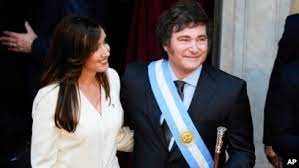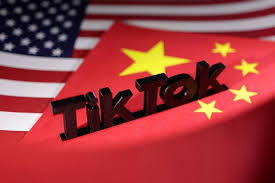As part of shock measures that new President Javier Milei claims are necessary to address an economic emergency, Argentina announced on Tuesday a significant depreciation of its currency and reductions to energy and transportation subsidies.
The Argentine peso would lose 50% of its value to the US dollar, from 400 pesos to 800, according to a televised statement from Economy Minister Luis Caputo.
“We’re going to be worse than before for a few months,” Caputo declared two days after Milei, a libertarian, took office as president of the second-biggest economy in South America and issued an instant threat of harsh measures.
The nation didn’t have time, according to Milei, to think about other options.
Approximately 40% of Argentines live in poverty, the country’s currency has plummeted, and inflation exceeds 143% annually. A massive $45 billion debt to the International Monetary Fund and $10.6 billion owed to multilateral and private creditors by April accompany the country’s $43 billion trade deficit and yawning fiscal deficit.
Caputo announced that to minimize the size of the government, the administration is canceling all public works project tenders and eliminating certain state employment.
Additionally, he stated that Milei’s administration is cutting back on the number of ministries from 18 to 9.
He claimed that the actions are required to reduce the fiscal deficit, which he holds responsible for the nation’s economic issues, including rising inflation.
Caputo declared, “Hyperinflation is inevitable if we continue as we are.” “Our goal is to prevent a disaster.”
The IMF praised the actions, stating that they offer “a good foundation” for additional talks regarding Argentina’s debt to the organization.
IMF spokeswoman Julie Kozack stated in a statement that “these bold initial actions aim to significantly improve public finances in a manner that protects the most vulnerable in society and strengthens the foreign exchange regime.” “Their resolute implementation will contribute to economic stabilization and lay the groundwork for more sustainable growth driven by the private sector.”
Major players in Alberto Fernández’s previous Peronist government remained silent in response to Tuesday’s announcement of measures.
Juan Grabois, a social activist and close associate of Cristina Fernández, the former president of the center-left from 2007 to 2015, however, stated that Caputo had declared “a social murder without flinching like a psychopath about to massacre his defenseless victims.”
He declared, “Your salary will get you half in the supermarket if you work in the public sector, the private sector, the popular, social, and solidarity economy, the cooperative or informal sector, or for retirees and pensioners, all of these sectors.” “Do you believe that there won’t be any protests?”
A recurring theme in Milei’s talks has been “there’s no money,” which he uses to justify the impossibility of taking a gradualist approach to the problem. However, he has guaranteed that the change is the first step towards recovering prosperity and that it will almost solely impact the state rather than the private sector.
The 53-year-old economist Milei became well-known on television for his foul-mouthed tirades against the political caste. He quickly converted his popularity into a congressional seat and, subsequently, into a presidential campaign. The self-declared “anarcho-capitalist” shocked the political world and completely turned the race around with his resounding victory in the August primaries.
Milei was sworn in on Sunday within the National Congress building, and the presidential sash was placed on him by outgoing President Alberto Fernández. A few legislators in attendance chanted “Liberty!”
Many Argentines have been wondering who Milei, the more moderate president-elect who appeared in recent weeks, or the chainsaw-wielding, anti-establishment crusader from the campaign path, will lead their nation.
During his campaign, Milei promised to abolish the corrupt political establishment, replace the rapidly declining peso with the US dollar, and abolish the Central Bank, which he said was printing money and causing inflation.
However, following his victory, he appointed former Central Bank president Caputo as his minister of the economy and one of Caputo’s allies to lead the bank, seemingly shelving his much-discussed dollarization intentions.
Like former US President Donald Trump, whom he publicly admires, Milei has positioned himself as a ready warrior against the advance of global socialism.
Nevertheless, he declared in his inaugural speech that he has no desire to “persecute anyone or settle old vendettas” and that any union leader or politician who wishes to back his proposal will be “received with open arms.”
Given the enormity of the task at hand, his lack of political experience, and the necessity of forming coalitions with other parties to carry out his agenda in Congress—where his party is a distant third in terms of seats held—his seeming moderation may be the result of pragmatism.


















